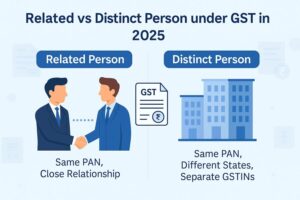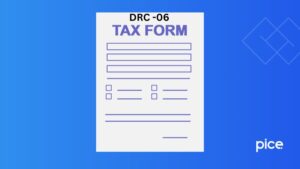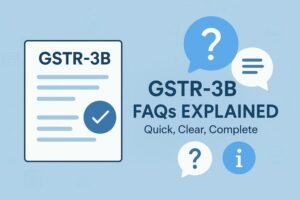All About Form GST REG 11
- 21 Aug 25
- 6 mins
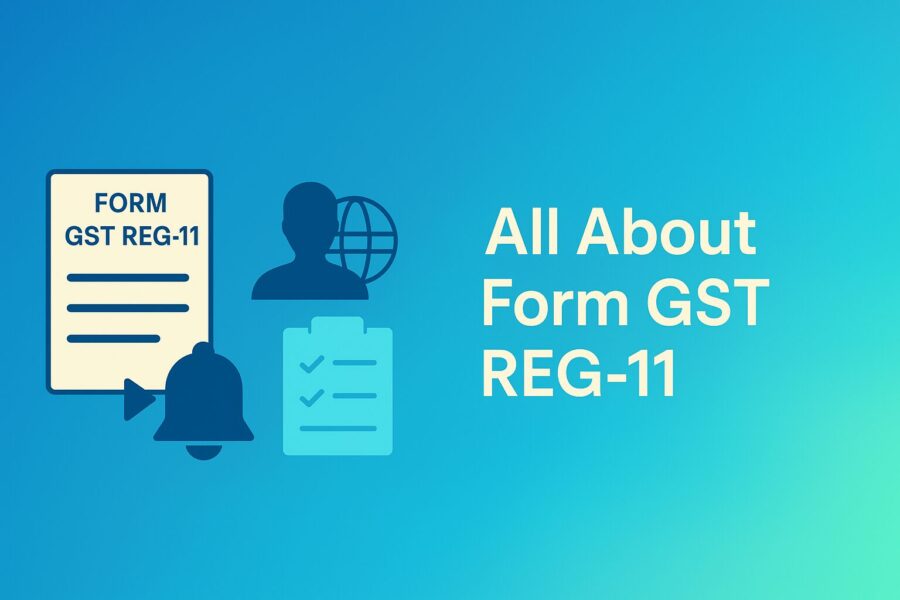
All About Form GST REG 11
Key Takeaways
- GST REG-11 is mandatory for extending GST registration of Casual and Non-Resident Taxable Persons beyond 90 days.
- It must be filed before expiry of the initial registration, otherwise a fresh registration is required.
- Only one extension is allowed, so timely filing is crucial for uninterrupted business.
- Tax dues must be cleared and sufficient balance maintained in the electronic cash ledger before applying.
- The process is fully online via the GST portal and generates an ARN for future tracking.
In India’s GST framework, most taxpayers register permanently, but casual taxable persons and non-resident taxable person are granted only a temporary registration period, typically 90 days. To continue their business beyond this duration, they must file form GST REG 11 to request an extension. This form is crucial for vendors and foreign sellers who do not have a fixed place of business in India.
In this article, we will break down everything you need to know about GST REG-11, including who should file it, the eligibility conditions, and the exact steps to submit it online before your existing GST registration period expires.
Who Needs to File the GST REG-11 Form?
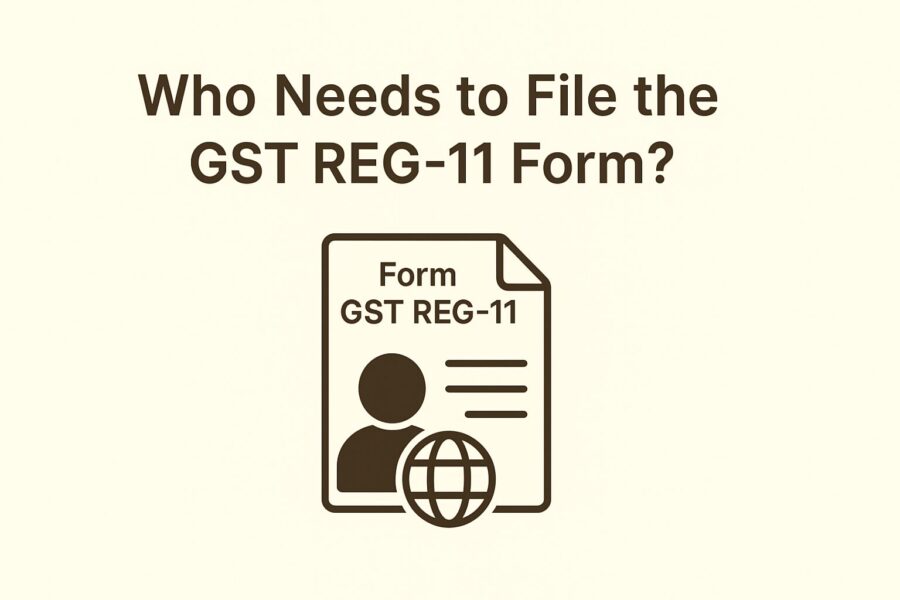
Two types of taxpayers are eligible to file form GST REG 11. Take a look:
- Casual Taxable Persons (CTPs):
Casual taxable persons are vendors supplying goods or services on an ad hoc basis to a taxable territory and lack a business establishment in such tax area. For instance, if a businessman from Karnataka sets up a food stall at a trade fair in Meghalaya, he will be classified as a CTP under SGST of Meghalaya.
- Non-Resident Taxable Person (NRTPs):
As the name implies, foreign sellers that offer goods and services in India but do not have a permanent business establishment in the nation are classified as non-resident taxable person under GST.
As per Section 27 of the CGST Act, 2017, both CTPs and NRTPs receive a 90-day business period after registration. However, they can extend this period by submitting a duly filed form GST REG 11 within the stipulated time.
Prerequisites to File GST REG-11
Before diving into the prerequisites to file GST REG 11, it is important to note that both taxpayers can extend their registration only once. Taxpayers must meet the following prerequisites to file GST REG 11:
- Valid Temporary Registration:
Whether you are a CTP or NRTP, you must have a temporary GST registration under Form GST REG 09 to file for an extension.
- Filing Before Expiry:
The request to extend the validity must be made before the expiry of the initial GST period. If the original period expires, the taxpayer has to file for a new application for registration instead of an extension.
- Tax Payments and Returns:
If there is any due tax for the registration period, then a taxpayer must pay that first before applying for an extension.
- Electronic Cash Ledger Balance:
You have to pay the tax liability for the extended period beforehand. Thus, make sure to have an adequate balance in the electronic cash ledger.
Filing Process of GST REG-11 Form
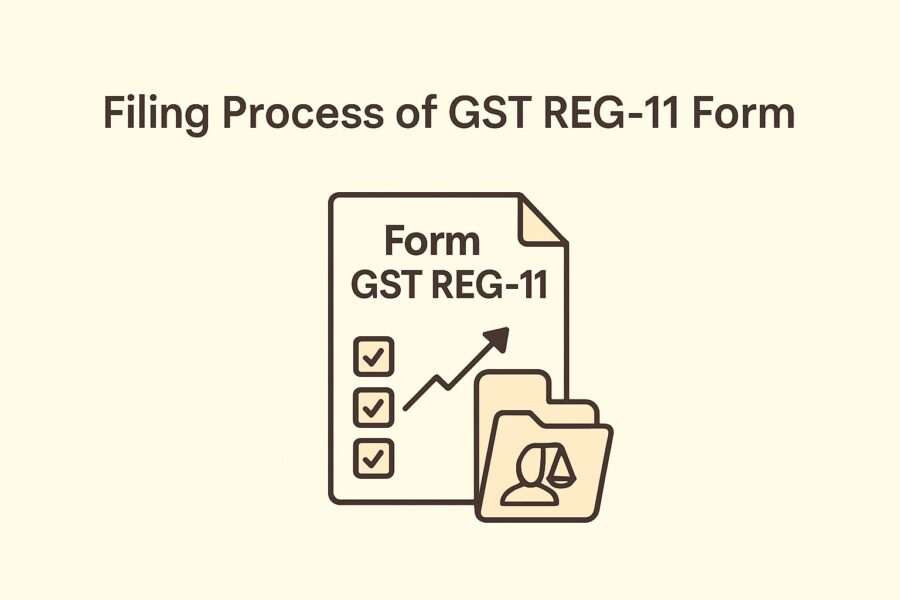
Filing form GST REG 11 is pretty simple. Here are the details:
- Step 1: Log in to the GST portal with your ID and password.
- Step 2: Navigate to ‘Services’ and then ‘Registration’ from the drop-down.
- Step 3: Under the dropdown, you will find ‘Application for Extension of Registration Period by Casual/Non-Resident Taxpayer' and click on it to open the GST REG 11 form.
- Step 4: Next, furnish all the required information.
- Step 5: Once done, recheck all the details to avoid any mistakes and process your application either via DSC or EVC.
- Step 6: After processing, an Applicable Reference Number (ARN) will be generated. Ensure to note that number for future reference.
After successful submission, your desired extension period will be added to your application for registration.
Conclusion
Casual and non-resident taxable persons must file GST REG-11 should they choose to extend the period of validity of their registration in India. This will allow for the smooth conduct of business from the business point of view without any interruption in tax compliances. The filing of the form is a one-time affair, and thus it is advisable that it is filed at least before the expiration of the original validity.
Moreover, an applicant must ensure that its dues are clear and that its balance in the electronic ledger is adequate to avoid rejection of the application. Timely filing will keep one in sync with GST regulations and avert the need of starting the registration application all over again, thereby saving energy, time, and smoothen the run of the uninterrupted business.
💡If you want to streamline your payment and make GST payments via credit card, consider using the PICE App. Explore the PICE App today and take your business to new heights.
 By
By 







